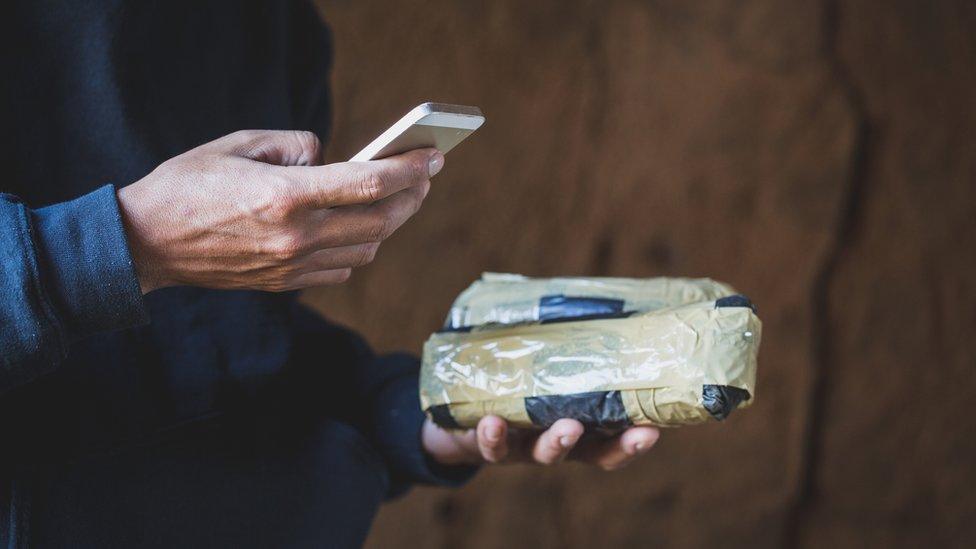Snapchat: Does app give drug gangs access to teenagers?
- Published
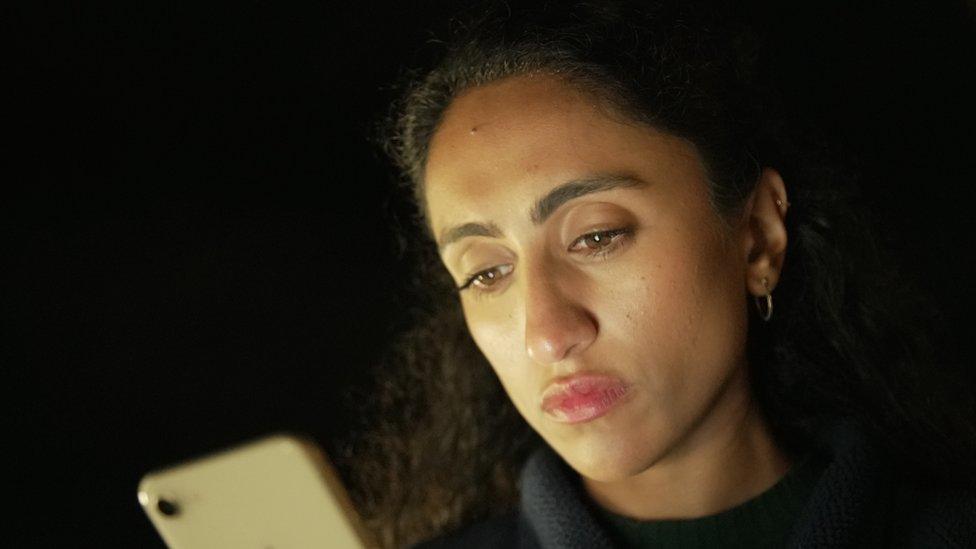
I'm shocked I'm offered drugs so easily even though I've set up my fake account as a child
Minutes after opening a Snapchat account pretending to be a 15-year-old girl, I'm amazed at what I see.
Drugs seem to be readily available - just a couple of clicks away. I thought this world was hidden and hard to access, but it is so easy to find.
I've gone undercover online to investigate how drug gangs use social media to groom children.
The fake account is for a 15-year-old girl called Mia.
Setting up Mia's account, I've not gone looking for drugs - or followed any accounts that seem criminal.
I've only followed accounts a teenager might, like musicians or funny videos.
On one account, which posts videos of people messing around with cars and motorbikes, I click on a story and up pops another app called Telegram.
On it is a page trying to sell drugs including cocaine and ketamine.
I am shocked that this content is so readily available, even though I set up this account posing as a child.
Snapchat said using its platform to buy or sell drugs was illegal and it proactively moderates content to detect and prevent any dealing.
'I thought he was my boyfriend'
I know these gangs do not just use social media to sell their drugs - they also recruit children.
Anna, not her real name, who is in her 20s, was exploited and controlled by an Eastern European drugs gang in south Wales as a teenager.
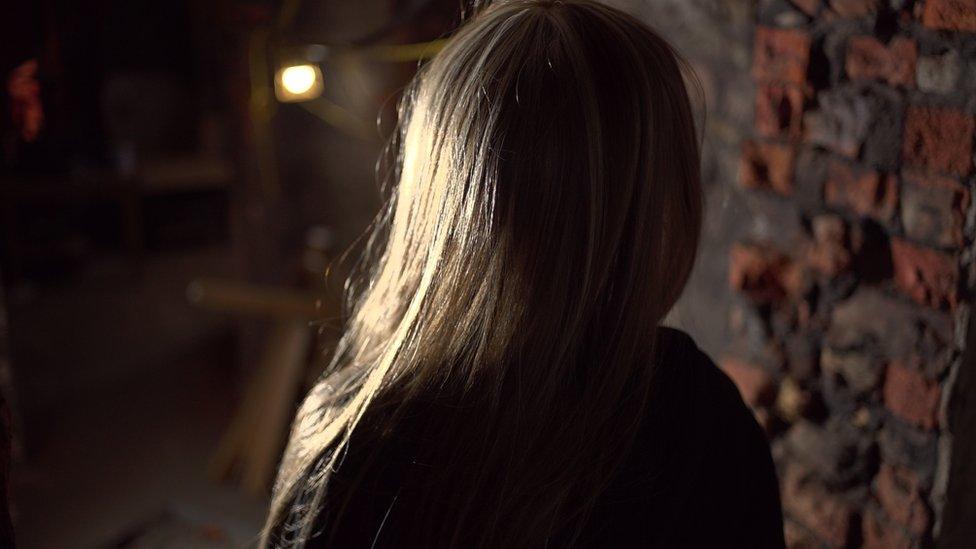
Anna felt trapped in the gangland underworld as the teenager was used by gang members
She got sucked into that dark world after a friend request on Snapchat from a young man she met on a night out.
"He would be quite romantic, quite flirty and just shown a massive interest in me," Anna told me. "We'd message 24/7."
Anna thought she was getting into a relationship. She saw a man, not much older than herself, taking an interest in her.
But he had other ideas and saw Anna as young, vulnerable and ripe for exploitation.
"The more I would be around, the more I would help with the drug dealing," she said.
"It was a bit scary at first, but I kind of realised that I didn't look like your typical drug dealer so I could get away with it a bit easier."
Anna felt like she was doing a favour for someone who cared about her, but she soon realised she was being used.
"I thought that this person was my boyfriend," she added.
"Then I would see messages from other girls or him messaging other girls.
"It was heart-breaking because he was the only person I had to turn to."
The gang used fear to control and manipulate Anna and they plied her with drugs - but it came at a cost.
'Trapped and lonely'
"We would just drive around and they would be drug dealing and we'd just be listening to loud music," she said.
"They had a boot full of drugs. They would just say just put your hand in the bag and take whatever you want out."

It's the question almost every parent worries about the most. Just how safe is your child online and on social media?
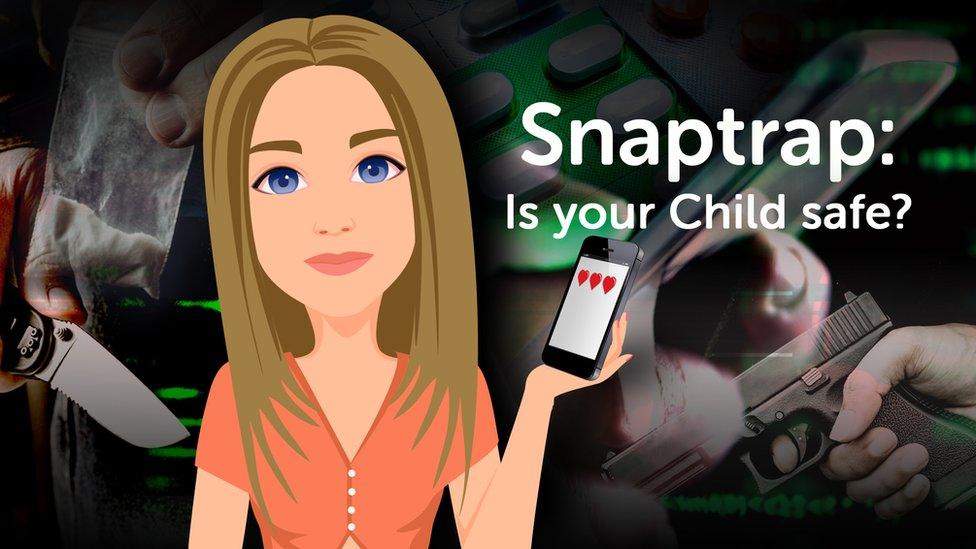
BBC Wales Investigates explores your children's safety in Snaptrap: Is your child safe? on 24 July on BBC One Wales and on BBC iPlayer

Anna believed she was being given the drugs for free - but that was not the case.
"They gave me an ultimatum which was 'you now owe us a debt for all these free drugs that you've used'," Anna said.
"They said 'now you have two choices - you can either help us drug deal and earn the money back for us or you can do sexual favours'."
Anna felt trapped by a debt that she'd never be able to pay off.
"I chose the option that I thought was going to land me in the least trouble with the police - the sexual favours," she said.
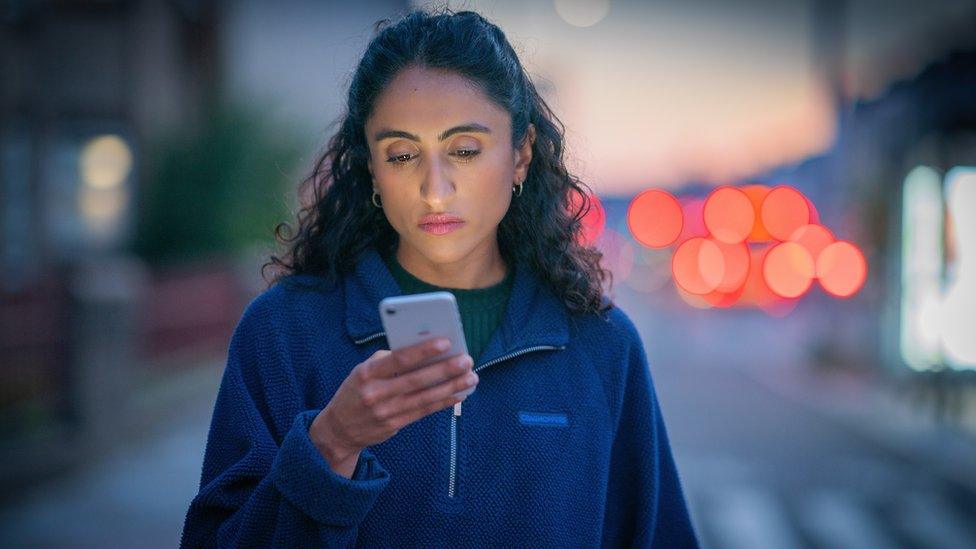
Gangs are on the lookout for fake accounts like mine
It was social media that pulled Anna into the gang's orbit. I wanted to see if the same might happen on my fake account.
Soon after setting up Mia's account, Snapchat started to suggest "quick adds" who I might want to make friends with.
I started adding them at random, and Snapchat suggested more and more.
Some of those suggested friends appeared to be drug dealers - constantly posting pictures of the drugs they claim to be selling.
What does this say about Snapchat's algorithm? It thinks I am 15, but it is connecting me to potential criminals.
One of my suggested friends even seemed to claim he was part of a gang transporting drugs from London to Swansea.
He started to message me - saying he was on the lookout for a "loyal girl".
When I said I lived in Wales, he seemed particularly interested.
But gangs are on the lookout for fake accounts like mine.
He asked to see a picture of me - which is impossible without blowing my cover.
This happened again and again during my investigation. Is this how gangs check kids out and make sure they were as young and vulnerable as they said?
Snapchat said buying or selling drugs on its platform was illegal.
"We work in multiple ways to detect and prevent this content to help keep our community safe, including proactive detection technology and in-app reporting tools," it said.
"We have a dedicated team that supports police investigations and meet regularly with experts to understand drug-related trends, terminology and behaviours used by gangs."
Snapchat said it had "extra protections for younger users to make it harder for them to be contacted by people they don't know".
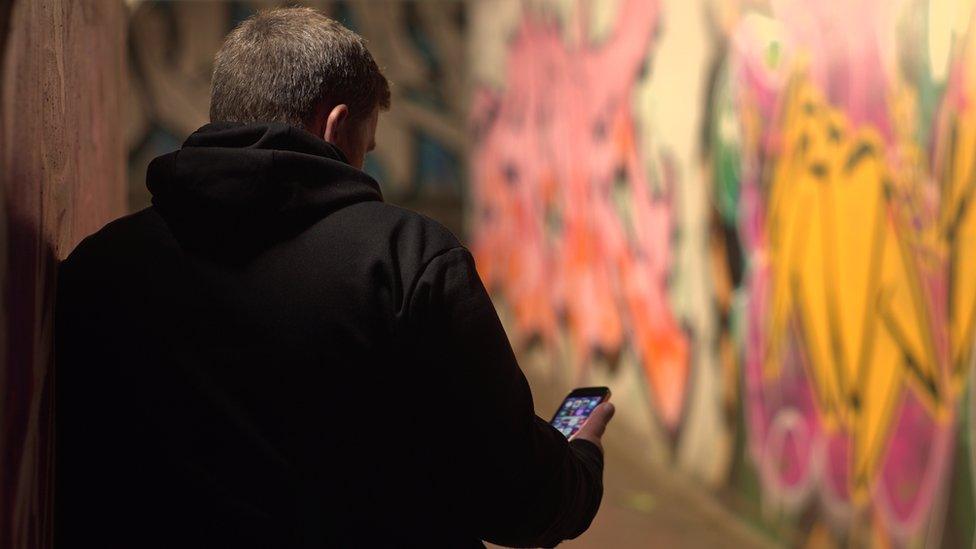
Tom was helping gangs establish themselves in Cardiff and says he feels guilty and ashamed
Tom, not his real name, used to work for gangs in Cardiff and was faced with the impact of grooming when he was forced to pick up the teenagers they'd targeted.
"At the start they were like 21, 20 then that got down to 17 or 16," Tom said.
"I was in fear of my life the whole time. I couldn't see a way out."
Tom entered the world of organised crime by helping gangs from bigger cities like London and Birmingham to establish themselves on his home turf of Cardiff - in return for free drugs - as part of a system called County Lines.
He took me to a popular residential area of Cardiff near the city centre where he used to operate.
"This area is full of drugs," he told me as we drove around Roath showing me where the traphouses - places where people buy and sell drugs - were.
"Areas around the city centre are full of gangs, not from this city, operating and selling drugs from cars, from flats to gorgeous five-bedroom houses. It's everywhere."
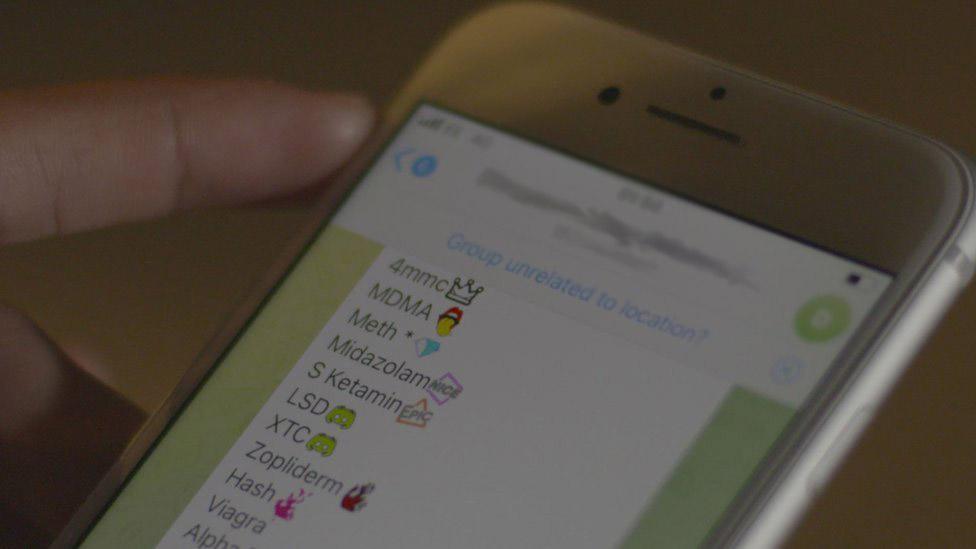
Very quickly after setting up my fake Snapchat account, I was being offered drugs
I'm curious about the area Tom showed me round - Roath - and so I decide to test out the app that I was redirected to when I first set up my Snapchat account - Telegram.
Telegram's "people nearby" feature said people all around me were selling drugs. There was someone selling MDMA, ketamine, meth and even heroin only 400m away.
Telegram said it "actively moderates harmful content' and added: "Moderators proactively monitor public groups and channels and accept user reports in order to remove content that breaches our terms of service."
Dealers are not even trying to hide their accounts. They are so easy to find I think children could come across them accidentally.
'A problem for the whole UK'
There are estimated to be more than 500 of these County Lines gangs operating across the UK.
The Metropolitan Police has a specialist team dedicated to tackling these drug gangs and claims to have shut down almost 1,500 of these networks since 2019, working with 26 police forces across the UK.
Detectives say they have shut down 122 drug lines and prosecuted more than 700 people in the past year.
"It's a problem that traverses the whole of the UK really," said Det Ch Insp Dan Mitchel.
"The average age of the individuals prosecuted is 25 and two-thirds of the time they've been previously convicted of drug supply so they're often embedded in criminality.
"What they tend to do is use children to run their drugs lines for them and we see children taking up a role at the very forefront where they're transporting the drugs from London."
South Wales Police said it arrested 29 people in recent operations in Swansea, Neath and London to tackle County Lines gangs - seizing "significant quantities" of crack cocaine, heroin and cash.
Anna eventually escaped the gang's clutches after going underground on social media but admitted she would "never stop looking over her shoulder."
Tom feels "sorry, guilty and ashamed" for his part in ruining children's lives for being part of a gang.
But he said: "I was just a pawn and I was used from day one."
His own gang nightmare changed one day by a knock at the door that ended with him in prison.
"When I seen [sic] the police, it was just relief, I just knew that was my way out."
If you have been affected by any of the issues in this story, the BBC Action Line has links to organisations that can offer support and advice
- Published2 December 2022
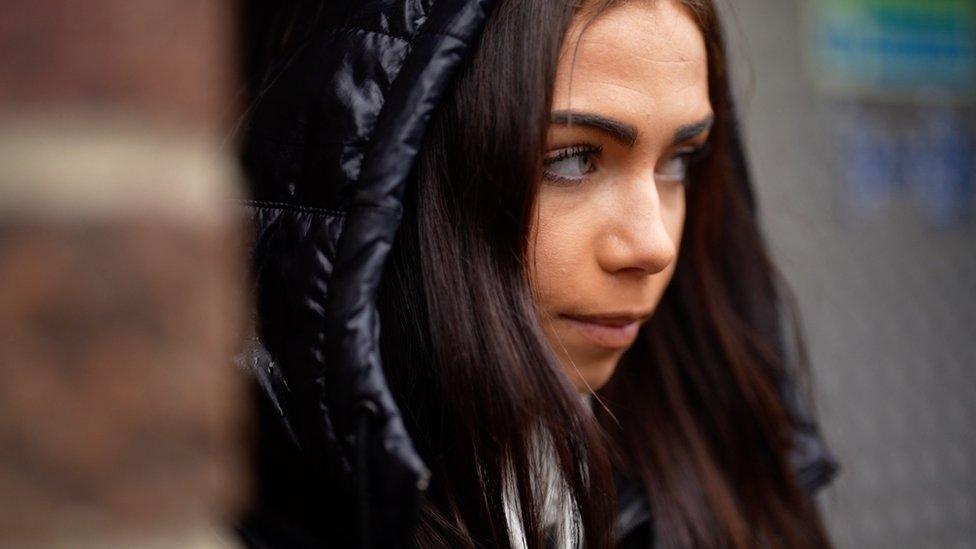
- Published20 June 2022
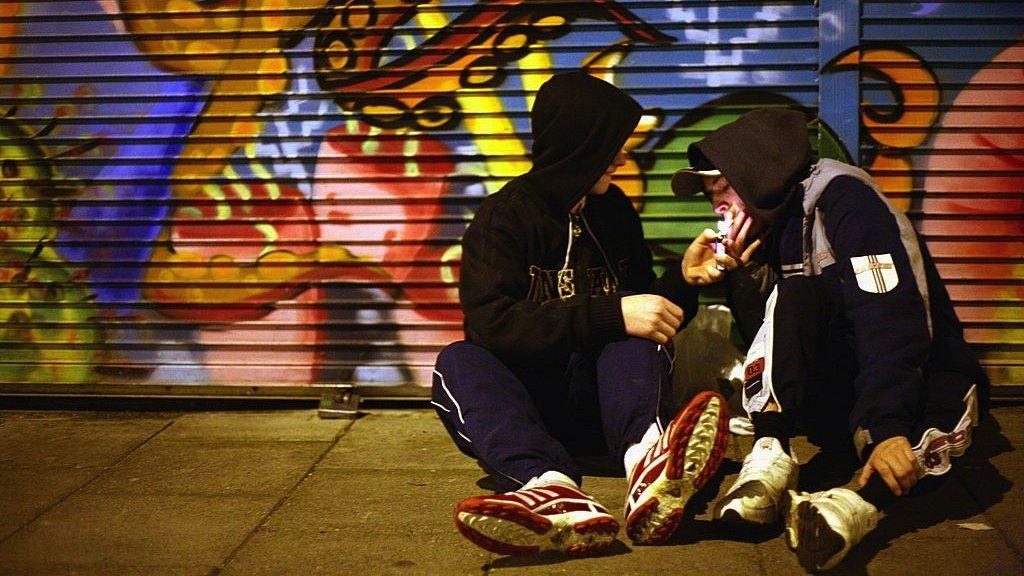
- Published27 May 2021
